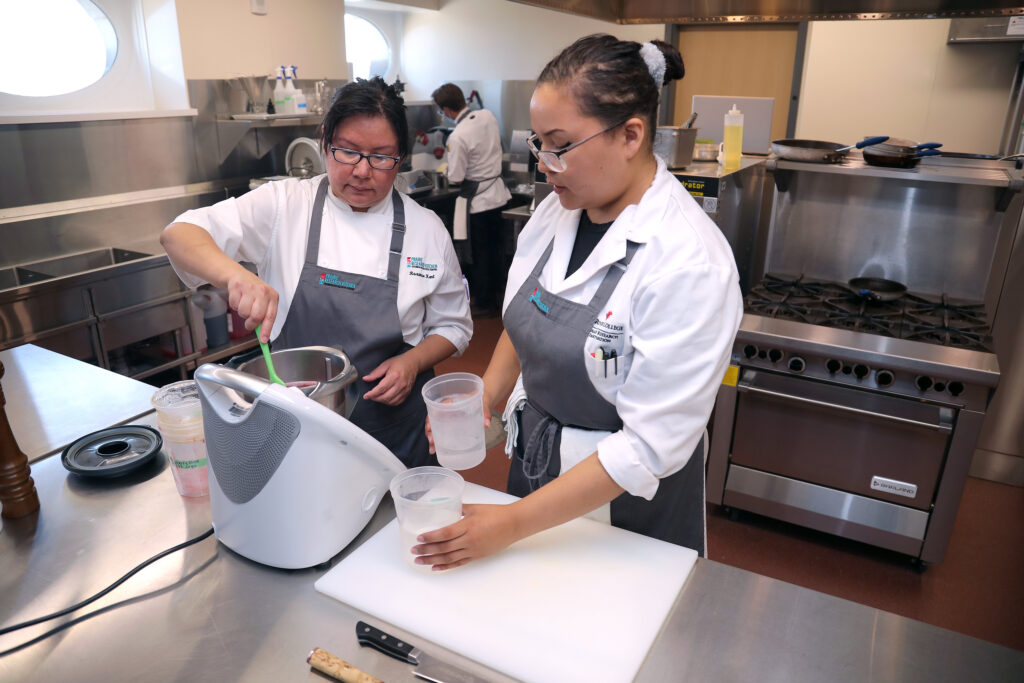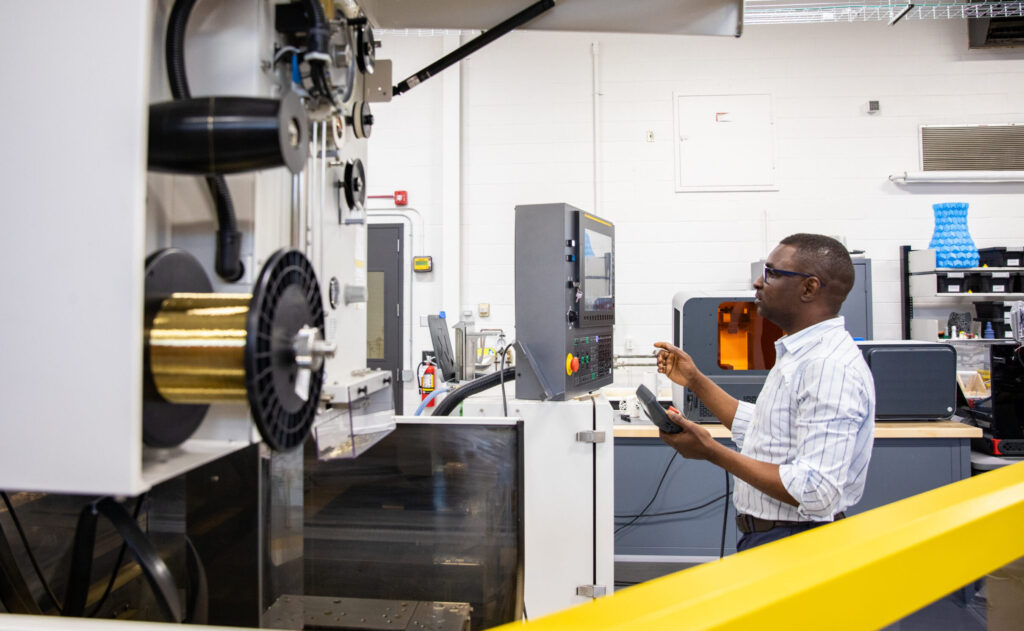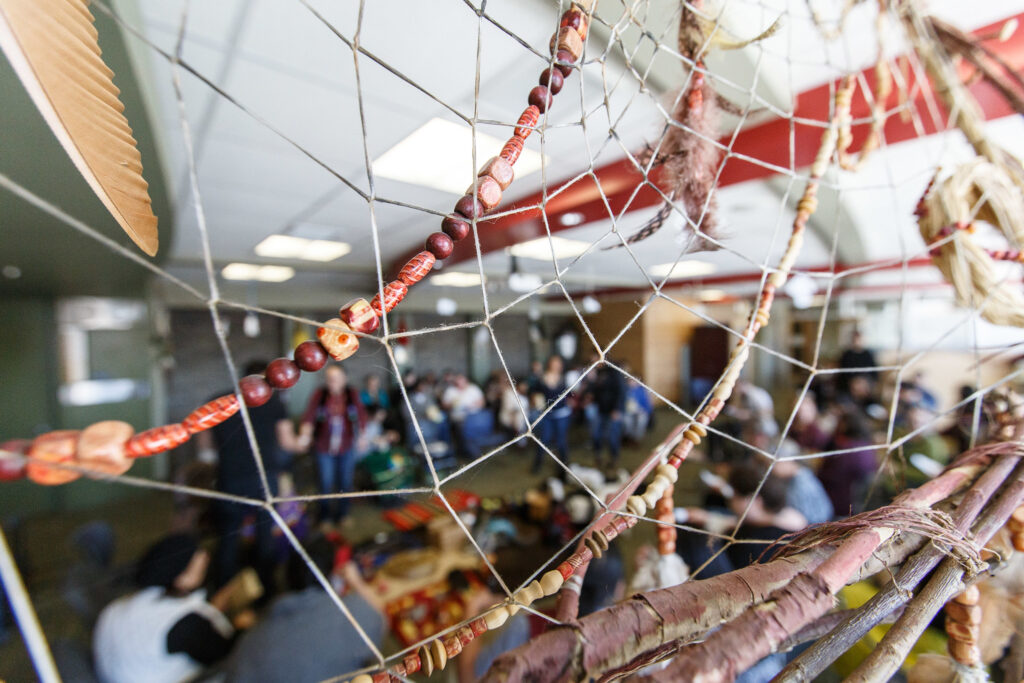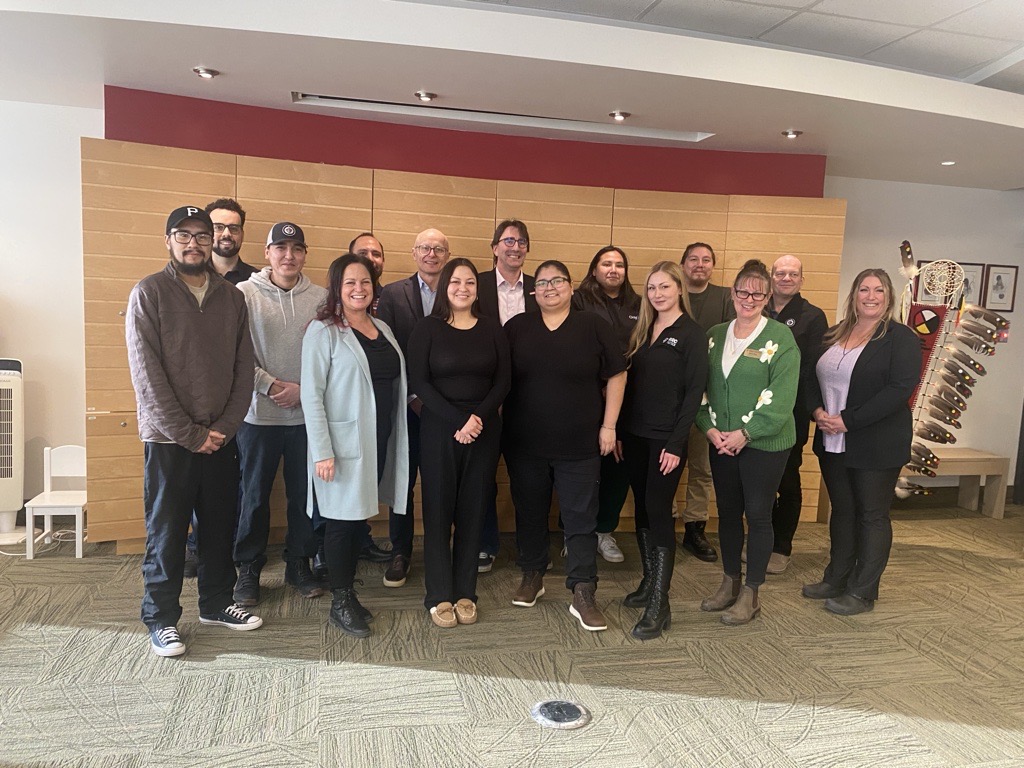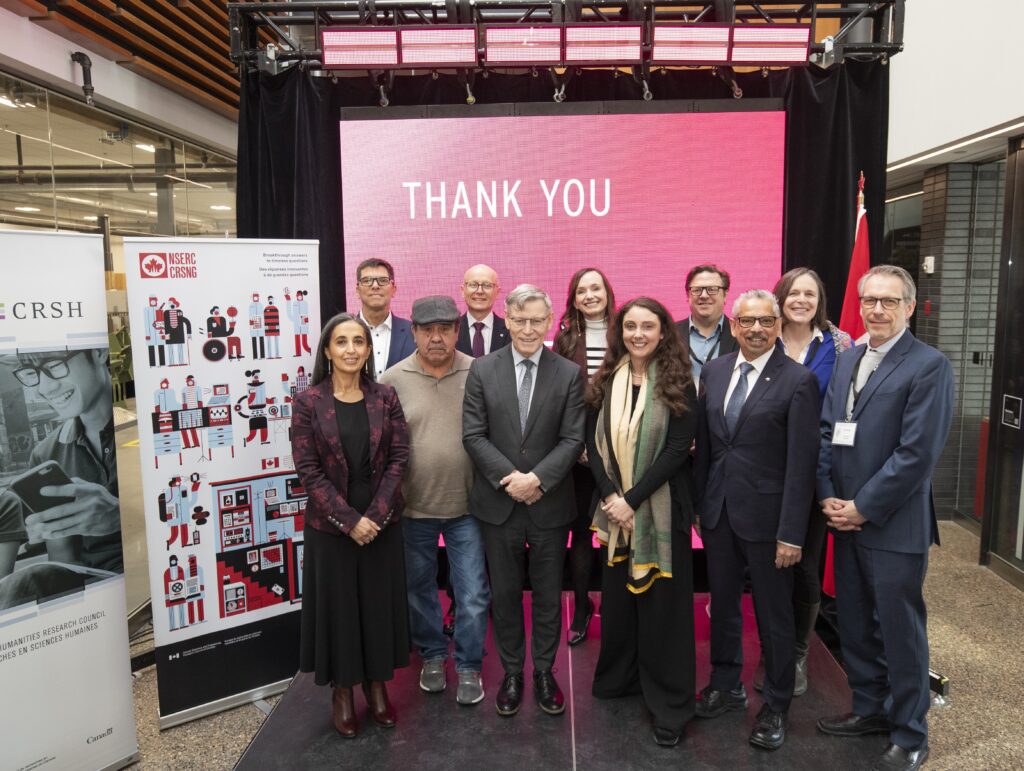Prairie Research Kitchen joins partnership addressing food security in Indigenous communities
RRC Polytech’s Prairie Research Kitchen (PRK) has joined an applied research consortium — made possible by a $1.2-million investment from Protein Industries Canada (PIC) — aimed at exploring agri-food opportunities and addressing barriers to food security in rural and remote communities in Manitoba.
The $1.6-million project finds staff and students from PRK and the University of Manitoba’s (UM) College of Rehabilitation Sciences at the Rady Faculty of Health Sciences working together with communities across the province to address food insecurity and Indigenous food sovereignty barriers related to First Nations and Red River Métis food production and distribution systems.
“I am pleased to be announcing a new partnership as part of a consortium, together with RRC Polytech and the University of Manitoba, and enabled by the commitment and funding provided through Protein Industries Canada,” said David Beaudin, Minister of Agriculture and Associate Minister of Provincial Education for the Manitoba Métis Federation (MMF), in a news release.
“This project will help facilitate the reimagining of Red River Métis food systems and will unlock new opportunities to better connect with our foods across the National Homeland of the Red River Métis. I look forward to seeing the project build value through capacity and skills development, all while enabling greater local access to nutritious food options.”
Food security exists when all people — at all times — have access to sufficient, safe and nutritious food. It’s not just about having enough food — it also means having the ability to access it and use it in a way that supports a healthy, active life.
Fresh, nutrient-dense groceries often come with a hefty price tag in rural and remote Indigenous communities. The new consortium will work with Red River Métis and First Nations communities in Manitoba to increase access to affordable, nutritious, supply-stable and culturally appropriate food while creating community-specific recipes that incorporate pulses and other plant-based ingredients.
The creation of these options aims to nourish and nurture long-term health outcomes, while increasing opportunities for student learning and jobs and contributing toward future Indigenous economic development. Read More →

